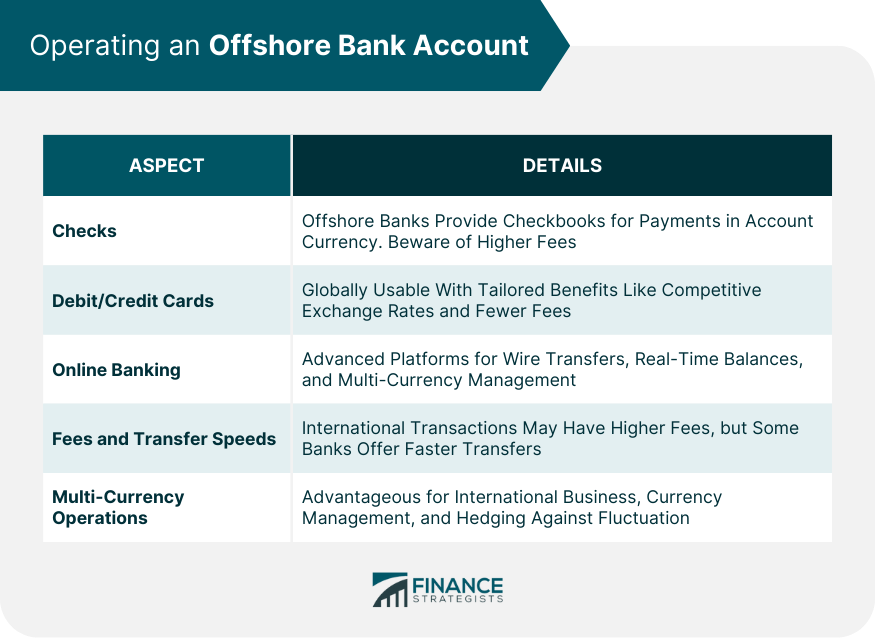Offshore Company Formation: Browse International Waters Securely
Offshore Company Formation: Browse International Waters Securely
Blog Article
Comprehending the Lawful Implications of Offshore Firm Development

Legal Framework for Offshore Business
When developing an offshore business, recognizing the lawful framework governing its formation and procedure is essential for compliance and danger monitoring. Offshore firms run under specific laws and laws that differ from those of onshore entities. The legal framework for offshore companies generally includes provisions for company registration, shareholder requirements, director responsibilities, and tax obligation commitments.
Firm enrollment entails sending the essential documents to the proper governing authorities in the picked territory. This process usually needs in-depth information concerning the firm's framework, shareholders, and intended activities. In addition, overseas firms need to stick to particular shareholder requirements, such as keeping a register of investors and keeping this information approximately day.
Directors of offshore business have fiduciary tasks to act in the very best rate of interests of the company and its investors. They are in charge of supervising the company's procedures, making certain conformity with all appropriate laws, and taking care of dangers successfully. Furthermore, understanding the tax obligation commitments of an offshore business is vital to avoid any type of potential lawful issues. By adhering to the lawful framework governing overseas companies, services can operate with self-confidence while minimizing lawful dangers.


Tax Obligation Effects and Laws
Understanding the tax effects and guidelines is critical when thinking about the establishment and operation of an overseas firm. Taxes play an important function in the decision-making process of whether to establish an offshore entity. Offshore firms are frequently based on positive tax obligation programs, offering lowered or no tax rates on foreign-earned revenue. Nevertheless, it is vital to navigate these tax obligation advantages very carefully to guarantee conformity with both the regulations of the offshore territory and the home nation.
Tax guidelines for offshore firms vary significantly across jurisdictions, and it is essential to look for experienced suggestions to understand the certain demands and responsibilities. Failing to abide by tax legislations can result in extreme effects, consisting of significant fines, reputational damage, and also lawful activity. In addition, offshore jurisdictions may have reporting obligations to disclose financial details to relevant authorities. Thorough understanding of tax obligation legislations and regulations, as well as proper tax obligation planning, are important to ensure the certified and successful operation of an overseas company.
Compliance Demands and Reporting
Ensuring conformity with regulatory needs and keeping precise coverage are vital elements of managing an offshore firm effectively and transparently. Offshore business must comply with the laws and guidelines of both the jurisdiction in which they are included and any other relevant jurisdictions where they conduct business. Conformity needs generally include filing yearly returns, financial statements, and tax reports with the appropriate authorities. Failure to fulfill these obligations can result in fines, fines, and even the abrogation of the business's enrollment.
In addition to regulative conformity, offshore companies are often based on reporting needs to make sure transparency and prevent unlawful activities such as cash laundering or tax evasion. Reporting commitments might include divulging information regarding the business's ownership framework, economic tasks, and beneficiaries. This information may need to be shown to governing bodies, tax obligation authorities, or other governmental companies, depending on the jurisdiction.
Preserving extensive and precise records is vital for demonstrating compliance and reacting to any type of inquiries or audits efficiently. Offshore companies must implement durable reporting devices and interior controls to guarantee that they meet all legal needs and operate with honesty.
Asset Defense and Personal Privacy Regulations
In the realm of overseas business development, an important factor to consider is the interplay between possession security strategies and personal privacy laws. Offshore jurisdictions usually supply improved asset protection systems that protect this hyperlink possessions from prospective threats such as suits, creditors, or political instability in the home country. By structuring assets within an offshore firm, people can secure their wealth and diversify their holdings across various legal frameworks. Privacy regulations in offshore jurisdictions contribute to keeping privacy and anonymity for business proprietors. These laws limit the disclosure of sensitive information, making it challenging for outside events to accessibility information about the firm's operations or ownership framework. This level of personal privacy can be helpful for people seeking to protect their assets from public analysis or rivals. However, it is important for individuals to browse these legislations fairly and transparently, ensuring compliance with both overseas guidelines and the lawful needs of their home country. Eventually, comprehending the complex partnership between possession security approaches and personal privacy laws is extremely important when considering offshore company development.
Threats and Difficulties to Think about
When venturing right into overseas business development, sensible factor to consider of possible dangers and challenges is essential for informed decision-making and critical preparation. One substantial danger to consider is the possibility of raised scrutiny from regulative authorities due to the regarded association of overseas entities with tax evasion and money laundering. This increased scrutiny can lead to considerable compliance demands and possible lawful effects otherwise correctly resolved. Furthermore, political instability or modifications in overseas territories can pose a danger to the continuity of procedures and the security of properties held by the overseas firm.
Challenges may additionally develop concerning the intricacy of overseas firm frameworks and the demand for professional lawful and economic suggestions to navigate advice the elaborate governing frameworks of different jurisdictions (offshore company formation). Preserving compliance with differing international laws and guidelines, as well as potential language barriers and social distinctions, can even more complicate the overseas firm development process. It is critical to be conscious of these threats and difficulties before waging offshore firm development to alleviate prospective pitfalls and make certain a lawfully audio and smooth facility
Final Thought
In conclusion, offshore firm development includes navigating intricate lawful structures, tax obligation ramifications, compliance requirements, and personal privacy laws. Understanding these facets is vital for minimizing challenges and threats connected with overseas organization operations. It is very important for businesses and people taking into consideration overseas company formation to seek specialist guidance to make certain conformity with guidelines and to safeguard their assets efficiently.
The legal structure for overseas firms normally consists of provisions for company registration, investor demands, supervisor duties, and tax obligations.
Directors of overseas business have fiduciary obligations to act in the finest interests of the business and its investors. By Extra resources sticking to the lawful structure regulating overseas business, services can operate with confidence while decreasing lawful threats.
Additionally, political instability or adjustments in overseas jurisdictions can position a risk to the continuity of procedures and the defense of properties held by the offshore business. - offshore company formation
In verdict, offshore business development involves navigating intricate legal frameworks, tax obligation ramifications, compliance demands, and personal privacy legislations.
Report this page